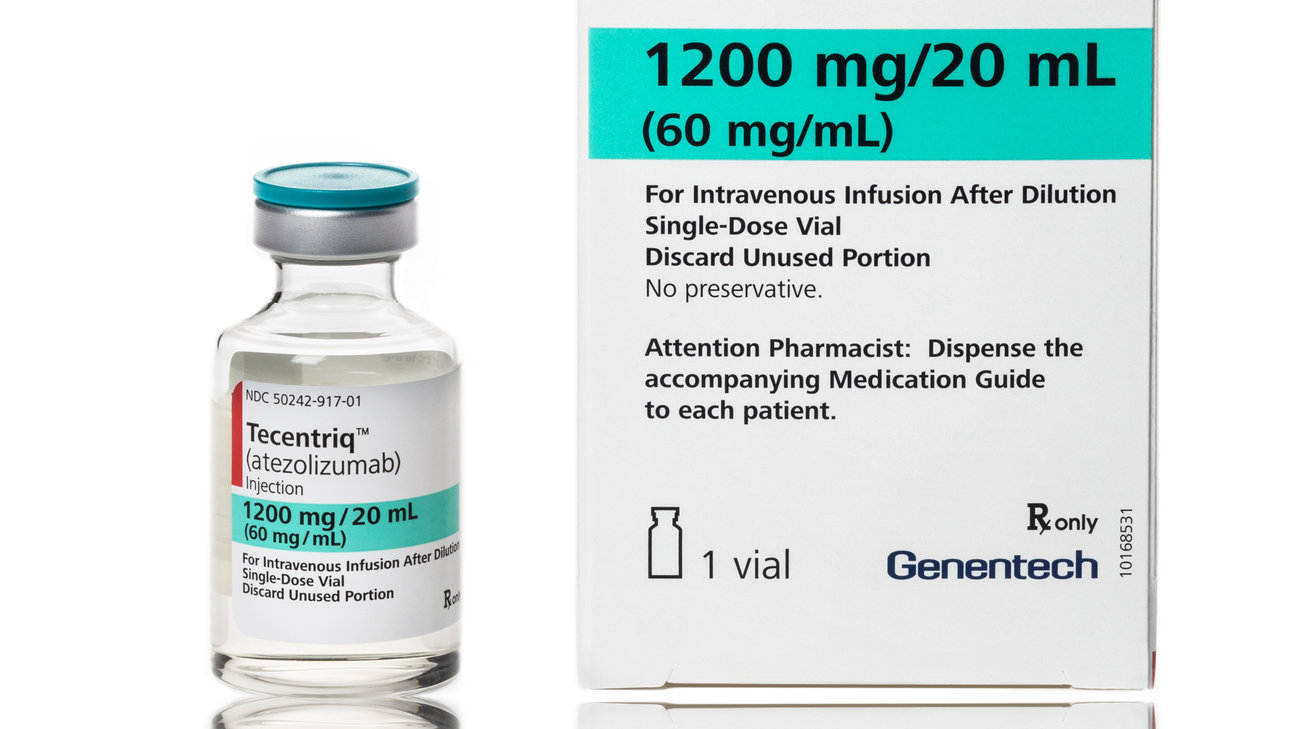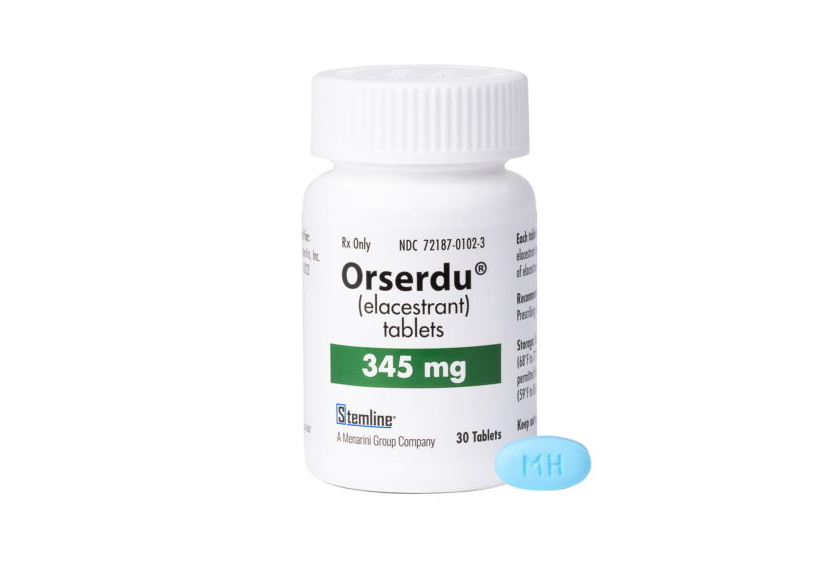Tecentriq (Atezolizumab) vs Orserdu (elacestrant)
Tecentriq (Atezolizumab) vs Orserdu (elacestrant)
Tecentriq (atezolizumab) is an immune checkpoint inhibitor used primarily in the treatment of various types of cancer, including bladder cancer and non-small cell lung cancer, by enhancing the body's immune response against cancer cells. Orserdu (elacestrant) is a selective estrogen receptor degrader (SERD) indicated for the treatment of estrogen receptor-positive (ER+), human epidermal growth factor receptor 2-negative (HER2-) advanced or metastatic breast cancer, particularly in postmenopausal women or adult men. The choice between Tecentriq and Orserdu would largely depend on the specific type of cancer a patient has, as Tecentriq is not indicated for breast cancer, while Orserdu is specifically designed for certain breast cancer types and would not be appropriate for the cancers Tecentriq targets.
Difference between Tecentriq and Orserdu
| Metric | Tecentriq (Atezolizumab) | Orserdu (elacestrant) |
|---|---|---|
| Generic name | Atezolizumab | Elacestrant |
| Indications | Urothelial carcinoma, non-small cell lung cancer, triple-negative breast cancer, hepatocellular carcinoma, and more | Advanced or metastatic ER+/HER2- breast cancer with ESR1 mutation |
| Mechanism of action | PD-L1 inhibitor, immune checkpoint inhibitor | Estrogen receptor antagonist, selective estrogen receptor degrader |
| Brand names | Tecentriq | Orserdu |
| Administrative route | Intravenous infusion | Oral |
| Side effects | Fatigue, decreased appetite, nausea, urinary tract infections, fever, etc. | Nausea, vomiting, fatigue, increased blood creatinine, etc. |
| Contraindications | Known hypersensitivity to atezolizumab or any of its components | Known hypersensitivity to elacestrant or any of its components |
| Drug class | Monoclonal antibody, immune checkpoint inhibitor | Oral selective estrogen receptor degrader (SERD) |
| Manufacturer | Genentech (Roche) | Radiopharm Theranostics |
Efficacy
Tecentriq (Atezolizumab) Efficacy in Breast Cancer
Tecentriq, generically known as atezolizumab, is an immunotherapy drug that has shown efficacy in the treatment of certain types of breast cancer. Atezolizumab is a programmed death-ligand 1 (PD-L1) blocking antibody designed to directly engage the patient's immune system to target and destroy cancer cells. It has been particularly effective in treating triple-negative breast cancer (TNBC), which is a type of cancer that lacks the three most common types of receptors known to fuel breast cancer growth—estrogen receptors, progesterone receptors, and human epidermal growth factor receptor 2 (HER2).
The efficacy of Tecentriq in breast cancer was demonstrated in the IMpassion130 trial, a Phase III study that evaluated atezolizumab in combination with nab-paclitaxel in patients with previously untreated metastatic triple-negative breast cancer. The results showed a significant improvement in progression-free survival in patients whose tumors expressed PD-L1 compared to those who received placebo plus nab-paclitaxel. This led to the approval of Tecentriq in combination with chemotherapy for the treatment of adults with PD-L1-positive, unresectable locally advanced or metastatic TNBC.
Orserdu (Elacestrant) Efficacy in Breast Cancer
Orserdu, with the generic name elacestrant, is an investigational oral selective estrogen receptor degrader (SERD) that is being studied for the treatment of estrogen receptor-positive (ER+), human epidermal growth factor receptor 2-negative (HER2-) advanced or metastatic breast cancer. As a SERD, elacestrant is designed to bind to the estrogen receptor, inducing a conformational change which results in the degradation of the receptor, effectively reducing the proliferative signal of estrogen and thereby inhibiting the growth of breast cancer cells.
The efficacy of Orserdu in breast cancer is being evaluated in clinical trials. Preliminary data from these studies suggest that elacestrant may provide a clinical benefit in patients with ER+, HER2- advanced or metastatic breast cancer, particularly in those who have received prior endocrine therapy and have developed resistance. These findings are promising and suggest that Orserdu could become a valuable treatment option for patients with this subtype of breast cancer, pending further investigation and regulatory approval.
Regulatory Agency Approvals
Tecentriq
-
European Medical Agency (EMA), European Union

-
Food and Drug Administration (FDA), USA

-
Health Canada

-
Pharmaceuticals and Medical Devices Agency (PMDA), Japan

-
Therapeutic Goods Administration (TGA), Australia

-
Medsafe (NZ)

Orserdu
-
Food and Drug Administration (FDA), USA

Access Tecentriq or Orserdu today
If Tecentriq or Orserdu are not approved or available in your country (e.g. due to supply issues), you can access them via Everyone.org.
How it works

Make an enquiry
Choose the medicine you want to buy, answer a couple of questions, and upload your prescription to speed things up. We’ll get back to you within 24 hours.


Make an enquiry
Choose the medicine you want to buy, answer a couple of questions, and upload your prescription to speed things up. We’ll get back to you within 24 hours.


Breeze through the paperwork
We'll guide you through the required documents for importing unapproved medicine, ensuring you have all the necessary information.


Get a personalized quote
We’ll prepare a quote for you, including medicine costs and any shipping, administrative, or import fees that may apply.


Receive your medicine
Accept the quote and we’ll handle the rest - sourcing and safely delivering your medicine.

Some text on this page has been automatically generated. Speak to your physician before you start a new treatment or medication.
Let's talk
If you have any questions, call us or send us a message through WhatsApp or email:
Contact us




